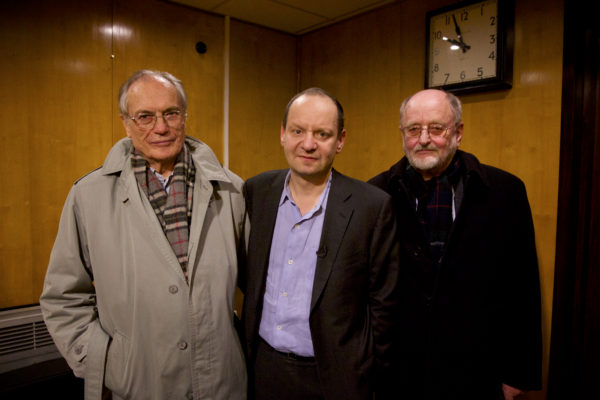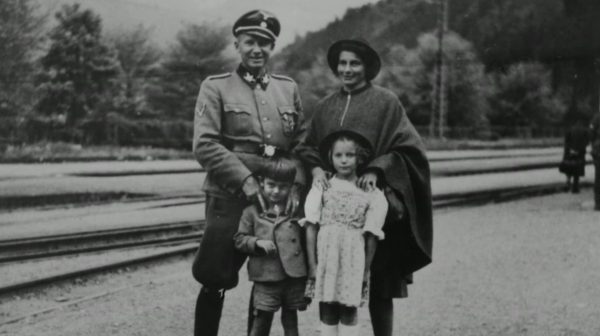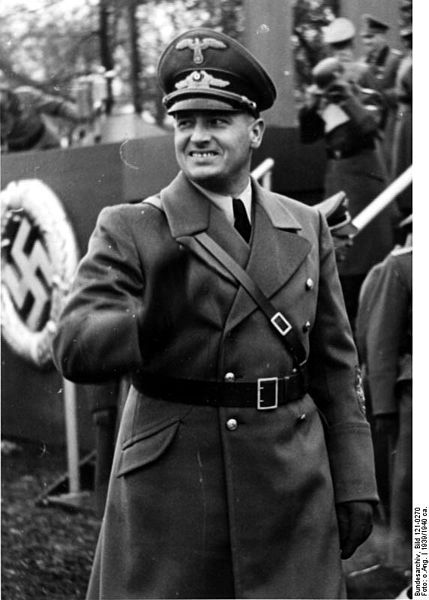How do sons come to terms with their fathers’ crimes?
My Nazi Legacy, which will be broadcast on the PBS network on Monday, May 2 at 10 p.m. (check local listings), examines this difficult and morally-charged issue through the eyes of two men whose fathers were certified Nazi war criminals.
Hans Frank was the governor of Nazi-occupied Poland, where three million Jews perished during the Holocaust. Otto von Wachter was one of his deputies. Their sons, Niklas Frank and Horst von Wachter, have been dealing with the ramifications of their crimes. While Niklas condemns his father for his role in the mass murder of Jews, Horst equivocates.

Philippe Sands, a British lawyer whose Polish relatives were the victims of Nazi genocide, accompanies the pair to Lvov (Lviv), where some of the massacres unfolded. (Lvov was in Poland before the war, but is now in Ukraine).
Hans Frank, Adolf Hitler’s personal lawyer, was appointed governor of Poland shortly after Germany’s invasion in 1939. Based in Krakow, he implemented Germany’s genocidal policies in Poland, though he personally did not lay a hand on a single Jew.

Otto von Wachter, an Austrian, was an SS general, governor of Galicia and commander of an SS division in which Ukrainian collaborators served. He was present in Lvov in the summer of 1942 when 75,000 Jews were deported to Nazi extermination camps.
As they visit Lviv, Niklas and Horst respond differently to their father’s respective wartime legacies.
Niklas, who had a distant relationship with his father, believes his chief priority was to please Hitler. Niklas says he was a “coward” who understood the enormity of his crimes but who lacked the courage to face up to them. Asserting his father deserved to be executed after the war, Niklas says he will never forgive him.
The closest Horst comes to acknowledging his father’s complicity in the Holocaust is when he expresses guilt over it. Admittedly raised like “a young Nazi boy,” Horst appears to contradict himself when he claims his father opposed Hitler’s racial theories. Horst goes on to claim his father protested Germany’s antisemitic policies, but had no alternative but to obey orders.

Even after Sands reads him a U.S. document attesting to his father’s guilt and takes him to a field where some 3,000 Jews were murdered and buried, Horst insists his father was a decent person who was not involved in the Holocaust. Although Horst concedes he feels “sad and ashamed,” he says he does not want “to be stuck” in the past. Worse still, he claims that only Jews condemn his father, who managed to elude justice by going into hiding with the assistance of Roman Catholic priests.
Horst’s denials of documented facts are mind-boggling and a source of annoyance and bewilderment to Sands.
To Niklas, Horst’s verbal maneuvers are despicable and outrageous. Niklas goes as far as to accuse Horst of being a Nazi. Horst, in turn, accuses Niklas of being an “egoistic maniac.”
My Nazi Legacy, directed by David Evans and written by Sands, doesn’t make overt value judgments, but it’s clear where they stand on this issue.